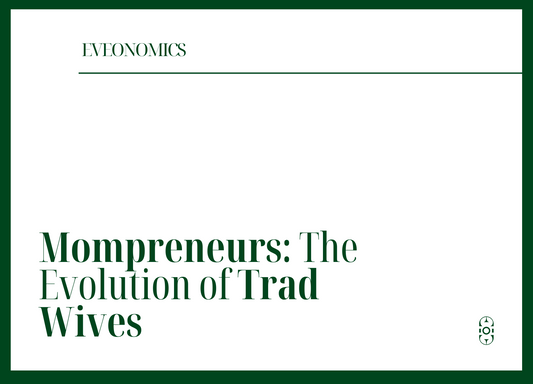When on a Journey to Wealth, financial independence isn't simply a buzzword—it's a movement. It speaks to a life where you're in control, untethered from financial constraints that often dictate our choices, aspirations, and the way we exist in the world. To get there, it’s not about flashy earnings or surface-level success; it’s about something more enduring, something that anchors you in freedom: wealth. Wealth is more than just accumulation; it’s strategy, vision, and discipline.
Let’s talk about what it really means. Financial independence doesn’t equate to being rich, though that’s often the comparison. Richness is fleeting, transient, tied to high income and consumption. It can vanish as quickly as it came. Wealth, on the other hand, is calculated, steady. It builds quietly through disciplined investing, calculated risks, and, most importantly, the power of compounding.
Imagine this: You're no longer working because you have to. You're making decisions with an ease that comes from knowing you’re covered—every step you take is about what matters to you, not just what pays the bills. Financial freedom allows you to break away from societal norms of success and create your own path. But, here’s the catch—it’s not going to happen overnight. It requires understanding, commitment, and a strong relationship with money.
Defining Financial Independence: More Than a Paycheck
At its core, financial independence is about the ability to make choices without money being the primary driving force. It’s having enough wealth to cover your living expenses without needing a 9-to-5. But here's the thing: it's not solely about accumulating wealth. It's about managing it, preserving it, and letting it do the work for you.
Unlike the traditional notion of being "rich," which can come and go with a high-paying job or windfall, financial independence is rooted in sustainability. It’s building a system where your assets—whether investments, property, or other income-generating resources—fund your lifestyle without relying on your immediate labour.
The Emotional Freedom of Financial Security
Here’s something the numbers won’t show you: financial independence brings emotional security. It’s peace of mind in a world where everything feels like it's designed to keep you on edge. When you're not tied to a paycheck, you have the flexibility to navigate your life differently. You can make bold career choices, take risks, or simply step back when you need to breathe.
It also shifts the power dynamic. You move from simply reacting to life’s demands to actively curating your own experience. This doesn’t mean you’re immune to setbacks, but it does mean that you have options, and options are a form of wealth that can’t be quantified.
Taking Practical Steps Toward Financial Independence
Now, you’re probably wondering: How do I even begin to cultivate this type of wealth? Let's break it down into manageable steps.
1. Budget with Intention
It all starts with how you handle the money you already have. Craft a budget that’s as sharp and intentional as your morning coffee ritual. This isn't about cutting out every little indulgence; it’s about prioritising and understanding what matters most to you. Track your spending, know your habits, and redirect funds to areas that will fuel your future goals.
Tools like Mint or YNAB aren’t just there to show you numbers; they are frameworks to help you see where your financial energy is going and where it needs to be recalibrated.
2. Save for the Unexpected
You need a cushion—a space between you and life’s inevitable twists. Start with an emergency fund that covers three to six months of living expenses. This fund isn’t about luxury; it’s about security. Whether it’s a job loss or a medical emergency, having this safety net keeps you from derailing your long-term goals when life happens.
3. Invest in Your Future
Here’s where the magic happens: investing. For those not in the financial world, this can sound intimidating, but it doesn’t need to be. You don’t have to be a Wall Street genius to benefit from compound interest, one of the most powerful forces in wealth-building.
Low-cost index funds and retirement accounts like a 401(k), IRA or SIPPs are accessible to most people. They offer the power of the market with minimal effort on your part. Consistency is key—start with whatever you can afford, even if it’s a small monthly contribution, and let time do the heavy lifting.
4. Tackle Debt with Strategy
Debt can strangle any hope of financial independence. It’s essential to tackle it head-on. Whether it’s student loans, credit card debt, or a mortgage, develop a plan that prioritises paying off high-interest debt while making room for saving and investing. The snowball or avalanche methods are tried and true. They give you a system, which is the foundation of financial freedom.
5. Diversify Your Income Streams
You don’t want all your eggs in one basket. While building your primary career or business, consider how you can develop secondary income streams. Whether it’s freelance work, real estate, or investing in dividend-yielding stocks, the more you diversify, the more stability you create. Financial independence is as much about diversifying your income as it is about managing your spending.
The Power of Financial Literacy and Discipline
Finally, financial independence demands that you continually grow your financial literacy. The world of finance changes, but the principles of managing money and wealth remain. Keep learning—whether through podcasts, books, or online courses—about investing, saving, and preserving wealth.
Discipline is what will set you apart. The temptation to spend, to opt for the immediate payoff instead of the long-term reward, will be constant. But those who remain steady in their approach—investing when markets are low, avoiding high-interest consumer debt, and sticking to their financial plans—are the ones who will truly achieve independence.
Conclusion: It's More Than Just Money
Financial independence is about more than just a number in a bank account. It’s about choices, freedom, and designing a life that feels uniquely yours. It’s about having the power to walk away from what doesn’t serve you and move towards what aligns with your values.
The journey won’t be easy, but it’s one you can absolutely begin today. Start by gaining control over your budget, building an emergency fund, investing in your future, and staying disciplined. With time, patience, and strategic moves, financial independence is not just a dream—it’s your future.
Now, take a moment to reflect. What steps are you taking to reach financial independence? Comment below and share your strategy.
If you'd like to learn more about the platforms that can help you get started on your investing and wealth journey, visit our Invest pages for resources. Be sure to select your geographical location to explore platforms available in your region.
*This article is for general information purposes only and is not financial advice. We are not licensed financial advisors. Please consult a qualified professional before making any investment decisions to ensure they fit your specific financial situation.





